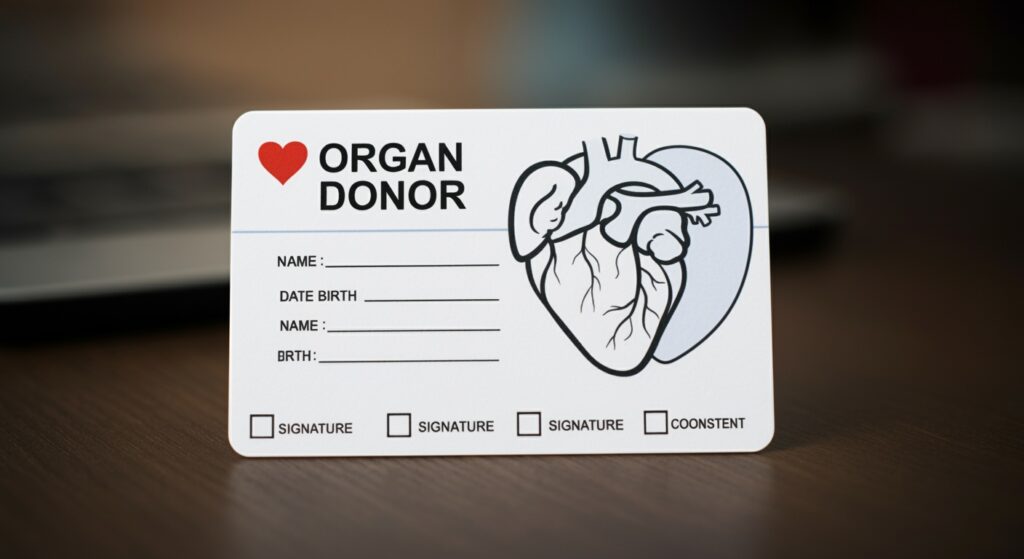When most people talk about heroes, they usually picture soldiers, firemen, policemen or maybe even some celebrity. But sometimes the real heroes are kids. Back in 2014, an 11-year-old boy from Shenzhen, China, named Liang Yaoyi, showed the world what that word really means. He was battling a brain tumor, and he knew he was running out of time, but instead of giving in to sadness, he made a wish. He wanted his organs donated when he died. That single act of organ donation ended up saving lives and inspiring many more people.
Facing a Difficult Diagnosis
Liang’s fight with sickness started early. Doctors had spotted a brain tumor, and despite treatments and surgeries, it didn’t go away. By the time he was 11, the outlook wasn’t good. A lot of kids would have only thought about the pain or fear. But he didn’t stop there.
According to his teachers, he had read something in a school textbook about donating organs. That lesson, just a few lines maybe, left a mark on Liang. He realized one person could actually help many others, and it stuck with him.
A Request to His Mother
At some point, Liang told his mom what he wanted. He asked her to donate his organs when he passed away. Imagine how tough that must have been for her to hear. A parent doesn’t want to even think about losing their child. But she respected her son’s wishes. She said yes, because she knew he meant it.
So when Liang passed on June 6, 2014, the doctors did as he wished. His liver and kidneys were transplanted into patients who desperately needed them. Through this simple act of organ transplantation, he gave people a new chance at life.
Doctors Show Their Respect
Here’s the part of Liang’s story that went viral. After the surgery, the medical staff bowed three times to Liang’s body. In China, bowing means deep respect. The image of grown doctors bowing to a little boy was so powerful it made its way all over the internet.
It wasn’t just about medicine anymore; it was about gratitude. It was also about saying, “This child is a hero.” And people everywhere agreed.
How Organ Donation Works
To understand why Liang’s choice mattered so much, you have to know how organ donation actually works. When a person dies but their organs are still healthy, doctors can transplant them into someone whose organs are failing. Kidneys, liver, lungs, heart, they’re all life-saving gifts.
Each organ has to be matched carefully to a patient. Once the transplant happens, the recipient often gets years of life they wouldn’t have had otherwise. Liang’s liver and kidneys ended up saving more than one person, which is kind of incredible when you think about it.
The Global Shortage of Donors
As uplifting as Liang’s story is, it also points to a sad truth. There are just not enough donors in the world. Thousands of patients die every year waiting for transplants that never come.
In China, it’s extra complicated. Cultural beliefs make people less likely to sign up as donors because many think the body should stay whole after death. But stories like Liang’s have slowly changed that view. People have started talking more about donating organs, and some even registered as donors because of his courage.

The problem isn’t just in China. In the United States, the shortage is also pretty huge. According to national health groups, there are over 100,000 people on the transplant waiting list at any given time. Every day, more names are added, and sadly, some patients never get the call that an organ is available. On average, more than a dozen people die daily in the U.S. while waiting. That’s how serious the shortage is.
The thing is, becoming a donor in the U.S. is actually simple. Most states let you register when you renew or apply for a driver’s license; you just tick the box saying you’d like to be an organ donor. You can also go online to the official registry websites, and it only takes a couple of minutes to sign up. Once you’re registered, your decision is stored so doctors know your wishes if anything happens.
The Meaning of the Bow
That bow from the doctors wasn’t just a gesture. It meant honor, respect, and a thank-you that words could not cover. In many ways, it said, “We see what you did, and we’ll never forget it.”
Even today, people still share that photo online. It’s become a symbol of what it means to give, even when you have nothing left to give.
A Ripple Effect Around the World
What’s wild is how far his story traveled. It wasn’t just in China. News outlets across the world shared what he did. Families and teachers talked about it, advocacy groups used his name, and strangers thought harder about signing up for organ donation themselves.

That ripple effect is probably bigger than he ever imagined. Liang’s choice could mean hundreds, even thousands, of future donors making the same choice.
It’s been more than ten years, but his story is still being told. That’s because it’s more than just news. It’s about compassion and second chances. It’s about how even a child can teach us the biggest lessons.
Final Thoughts
Liang Yaoyi was just 11 when he became a hero. His final act of organ donation saved multiple lives and inspired countless others. He didn’t let his illness define him. Instead, he chose kindness and courage. His story proves you don’t have to be grown up to change the world. You just need a heart willing to help.
Read More: At Only 19 Years Old, Girl Sacrifices 65% of Her Liver To Save Her Father’s Life

